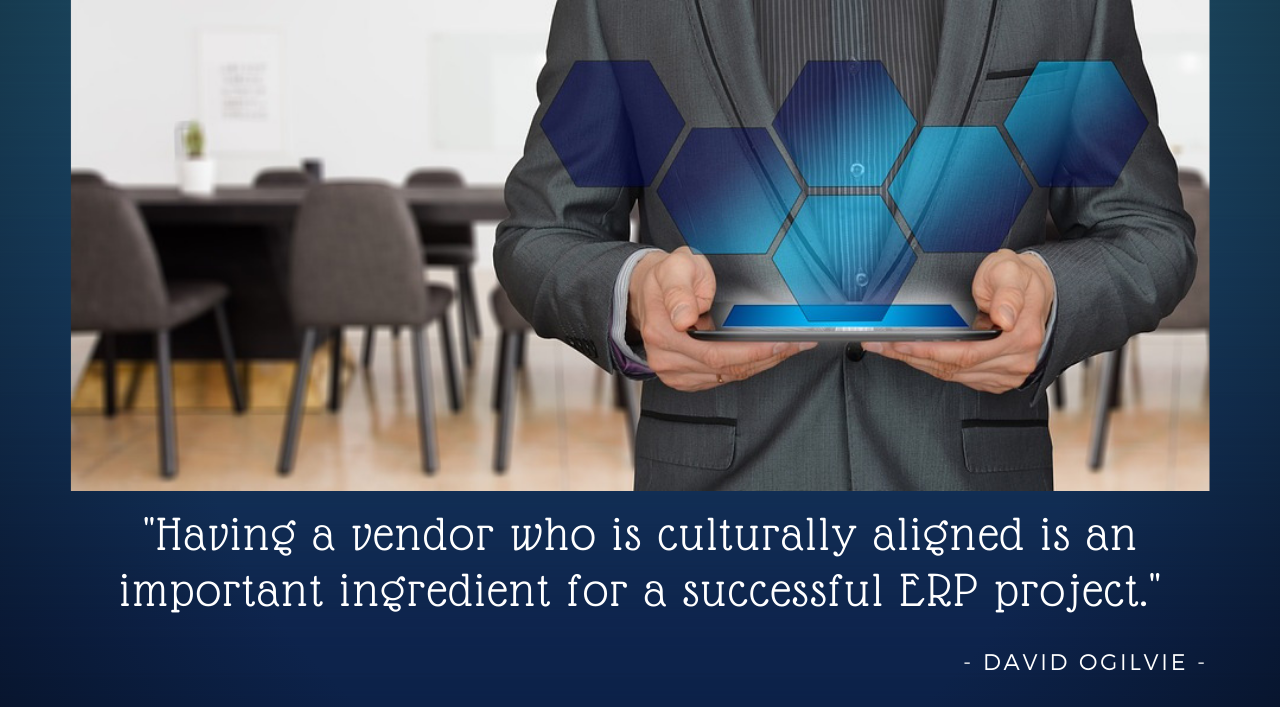
Selecting the right Software Vendor/Partner
MAFS = Marriage at first sight or a marriage from hell!
Australian readers will be familiar with the recent, so called, reality TV series on Channel 9 called MAFS. While I didn’t watch the show, the advertisements for it made it very clear the show was full of drama, lies and unfaithfulness. Traits that one would wish to avoid in all relationships, especially in the relationship with your ERP vendor. Likewise in business your selection of ERP vendor/partner can be similarly risky.
After all the ERP space has a high failure rate. However, when it is done well, can provide the infrastructure to catapult your business up into the next level. Before you get married to your partner you want to know more about them than the participants of MAFS did with their partners.
As my regular readers will know, it is my view that having a software vendor that is culturally aligned with your own, is an important ingredient for a successful ERP project. The seeds of this success are planted during your selection process. Gaining an understanding of the different motivations that drive the different software vendors, is key to understanding their likely behaviour both during and after the sale process.
No two software vendors are alike. Understanding which delivery model they use can be insightful and help you predict the way in which they will work and interact with you. Each model has their own set of drivers, particularly financial drivers. Uncovering and understanding these drivers is, at times, not easy. However, with carefully crafted questions you can often uncover key information that will be useful to your decision making. Making no effort at all to understand these drivers usually equates to a poor relationship and poor implementation results.
Areas I feel you should question in detail are:
- Ask deeply probing questions of the sales person around their remuneration and most importantly what are their incentives based on? (You don’t need to know their exact salary but the percentage break up of salary vs commission is important.) You could also ask if the incentives are based on monthly, quarterly or yearly numbers. Knowing this can be useful in your discussions around timing.
- Ask how they, both themselves personally and the company, are tracking? Be prepared for them to be evasive or provide a standard positive response. I have found over the years those companies whose salespeople are open and up front about these things, are most often the best to deal with.
If representatives of the company are cagey about this topic – they tend to be cagey about other things in the delivery as well. What you need is an open and honest relationship and this can be a leading indicator of the likelihood of a sound relationship being developed.
- Ask the executives of the different software vendors you are talking to about the incentive plans they are on from the head office. These vary depending on the delivery model used. If they are a reseller or partner model, ask about the percentage breakup of revenue by license and service fees.
With the advent of cloud and subscription offerings, many resellers are now faced with traditional revenue streams being curtailed resulting in them having to find new revenue streams. Many are turning to an increase in consultancy or project management fees. This change is having a large impact on the behaviour of these organisations. Where once they may have freely provided information about the software and underlying technologies during a project they now may no longer do so and in fact now charge for such information.
- Ask about the strategic direction of their business, particularly around cloud adoption vs on-premises and the adoption of other technologies. How do they plan to leverage developing technologies such as AI, Industry 4.0, native language BI and IoT. Make sure you are both heading in the same direction and they have the capability to progress at the same rate you wish to.
- Ask about their view on who controls the project? If this is not clear you run a serious risk of two project managers clashing for supremacy. Regular readers of mine will know it is my view that the client must “own” the project. It is part of the secret sauce of success. Therefore, the role of the project manager from the vendor side can be reduced to one of being a project administrator. Thereby reducing the cost of this component of the project. This obviously assumes you, as the client, have an experienced and independent project manager working for you to achieve this.
Remember many executives have not done this before, or if you have the industry has changed. Having an experienced independent advisor helps you because:
- We have been through the dry gullies and have learnt the lessons. We can provide you a road map of how to avoid the pitfalls.
- We bring experience from a variety of industries to your specific challenges.
- We have no hidden agendas and are able to provide full and frank advice – You get an honest point of view.
- We bring a proven set of tools to your circumstance.
- Of what questions we ask and our ability to put the vendor under pressure to prove their statements of capability.
- Of our support to executives so their risk is minimised.
If you or anyone you know is looking;
- To improve the way their business operates
- To improve the way they leverage their current software systems
- To replace their current system
Give me a call for a confidential discussion on the best way to achieve this.
Until next month … I wish you and your family the very best for a safe and enjoyable Easter break.
Sincerely,
David.